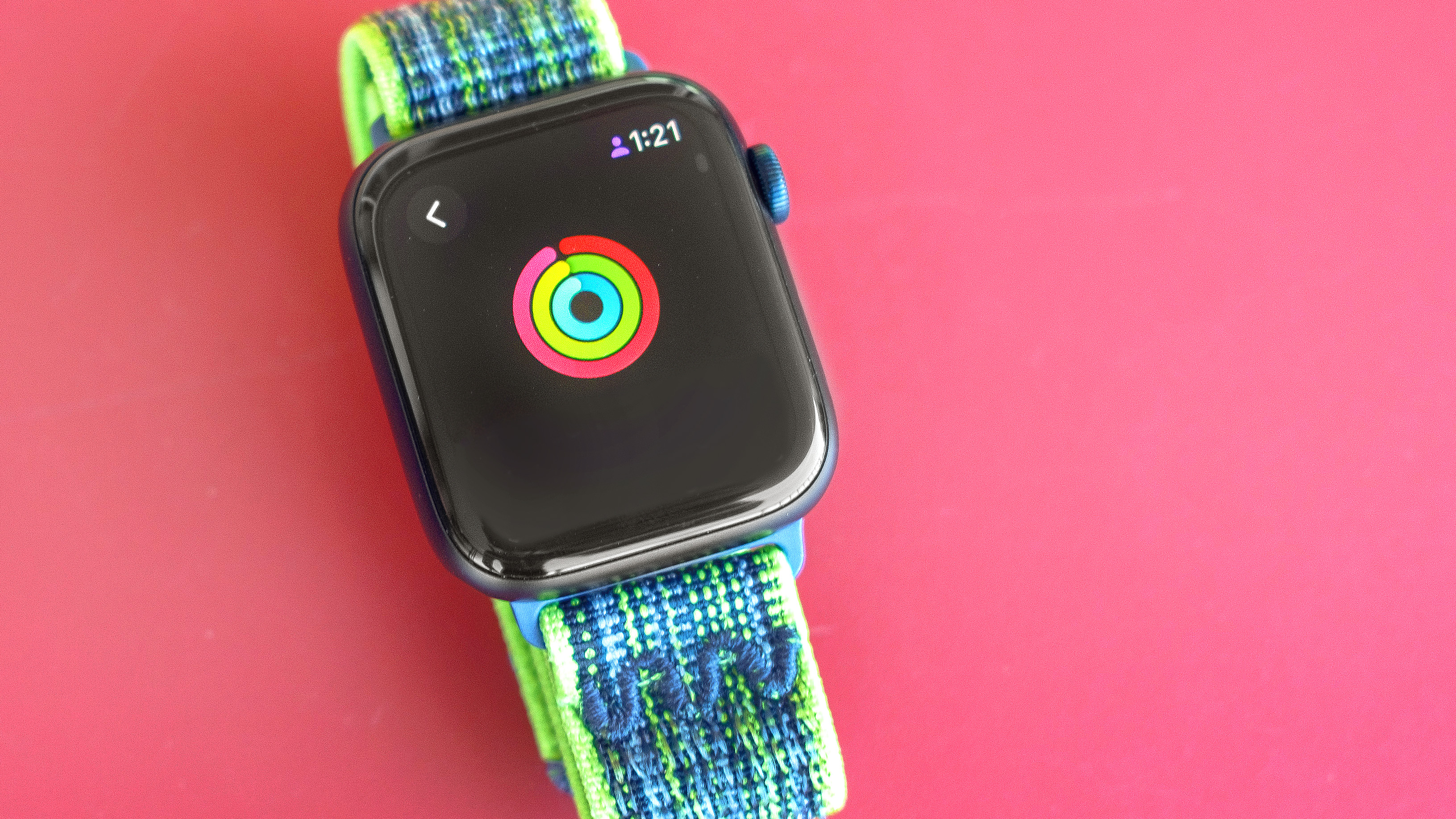How Apple AirTags work — and how they thwart stalkers
Everything you need to know about how Apple's AirTag
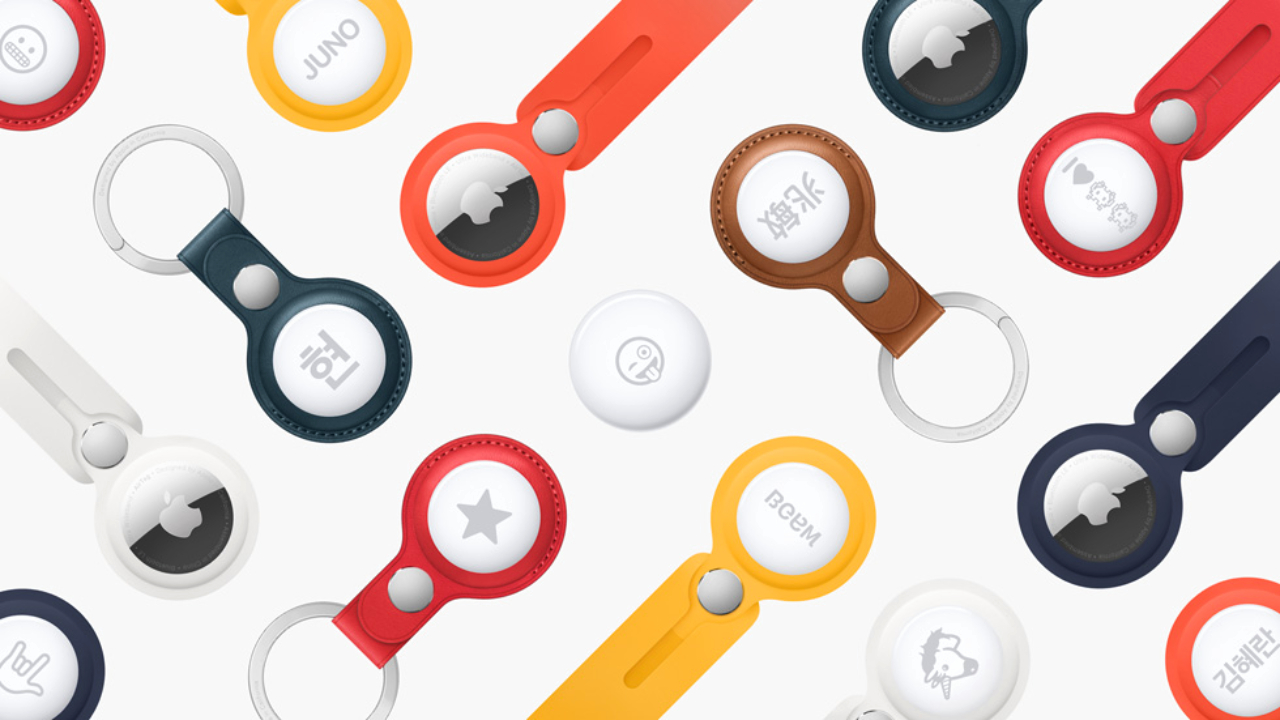
Apple has finally unveiled its Apple AirTag trackers, clever circular devices that promise to keep track of your items. From keys and wallets to backpacks and luggage, AirTags attach to your belongings, using Bluetooth and ultra wideband to pinpoint their exact location.
Those of us who are forever misplacing their keys will be thankful for this neat little tracking gizmo. But how do AirTags work exactly, and what makes them different from the best key finders like Tile? Just as important, how does Apple prevent AirTags from being used to track people?
We'll answer all your questions below.
- How to use Unlock with Apple Watch on iOS 14.5 beta
- iOS 15: Everything we know so far
- More: iOS 14.5's top feature already has bugs
How much do Apple AirTags cost?
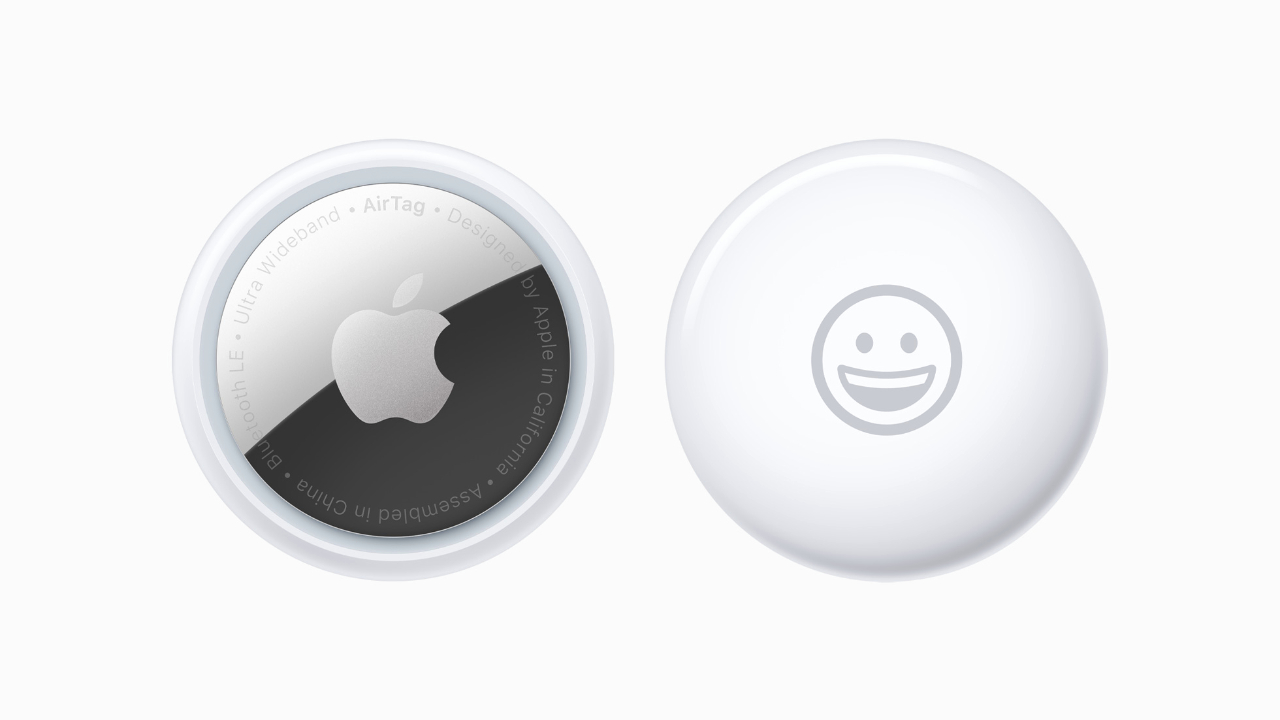
A single AirTag is priced at $29 / £29 / AU$45, and a pack of four AirTags can be purchased for $99 / £99 / AU$149.
AirTags can be purchased directly from Apple. But to attach your AirTags to wallets, keys and bikes — any day-to-day items you wish to track — you'll need to grab an additional fob, as well.
Apple sells AirTags accessories, ranging from a $25 polyurethane loop and a $39 leather loop to a $449 Hermes luggage tag. If you're looking for something cheaper, Belkin makes AirTag accessories starting at $12,95 for a key ring.
How do Apple AirTags work?
Apple's AirTag slots neatly into the Find My ecosystem, expanding it to make it easier to keep track of the important items in your life.
Sign up to get the BEST of Tom's Guide direct to your inbox.
Get instant access to breaking news, the hottest reviews, great deals and helpful tips.
Through AirTag, if you've lost one of your belongings close by, you can play a sound that helps you locate it, or just say, "Hey Siri, where are my keys?" Your AirTag should then issue a sound, letting you know where it's located. You can also use the Find My app on your iPhone to find any lost item with an AirTag attached.
Likewise, iPhone models that have the U1 chip (iPhone 11 and above) have the ability to steer you to the specific location of a lost item through Precision Finding. Your U1-enabled iPhone uses ultra wideband, which is the short-range, wireless protocol that uses radio waves to give your iPhone a sort of virtual spatial awareness. It can therefore judge the distance and direction to your AirTag, which also contains the U1 chip in its body.
Apple says that your iPhone then combines that data with the "accelerometer, camera input, ARKit and gyroscope," to provide feedback as to where your item is precisely located. Taking the form of haptic, visual and audible feedback, it should then guide you to where those keys are.
Lastly, Find My network. This is to help you track items that may be far removed from where you are. You'll likely be familiar with this if you're a fan of macOS, iOS and iPadOS, where users can track the best iPhones and best MacBooks, as long as they've been added to Find My app.
In the same way, AirTag can plug into this gargantuan tracking network, plus use any other nearby compatible devices to relay the location of your lost AirTag to iCloud should this happen.
How long does the battery last in AirTags?
The AirTag uses a standard CR2032 coin cell battery, which Apple says will last over a year. This is based on "everyday use of four play sound events and one Precision Finding event per day."
Your battery's mileage will no doubt vary depending on how much you use the tags, so it'll be interesting to see how it fares over time.
Which iPhones work with Apple AirTags?
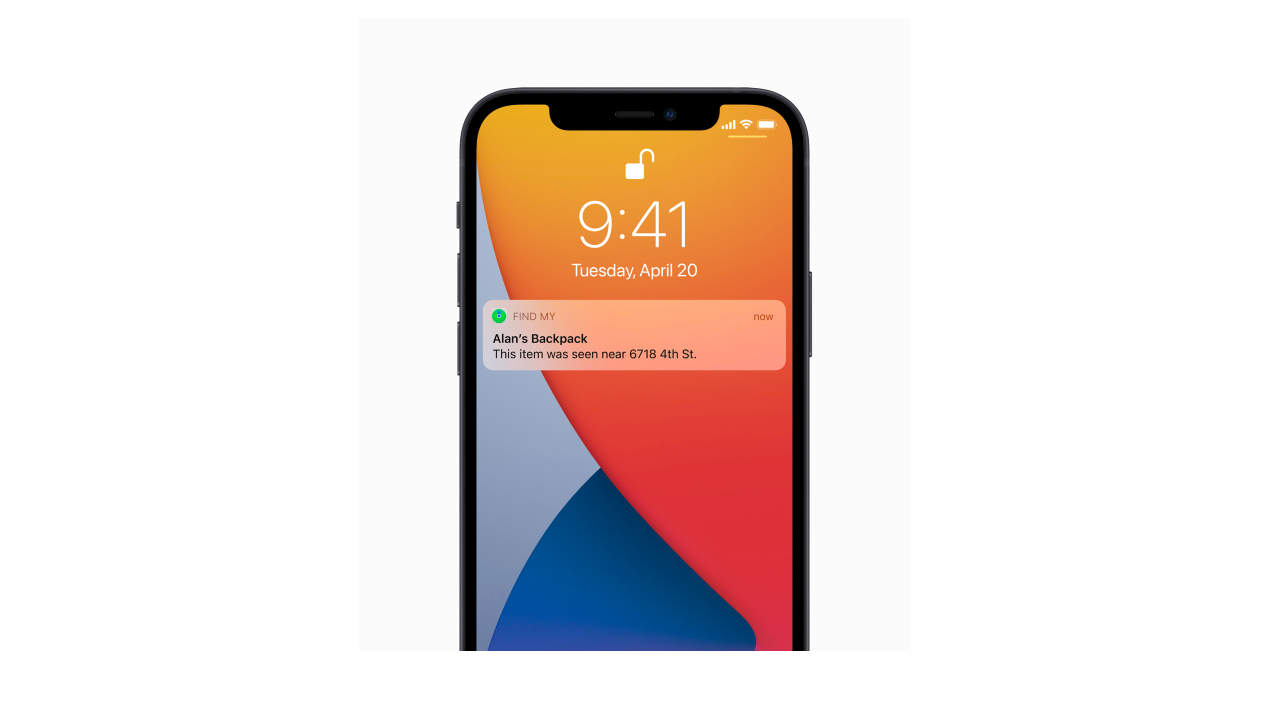
We were pleasantly surprised to hear that the Apple AirTags would be compatible with a range of iPhones on launch.
That said, to get the very best performance from the Apple AirTags, you'll almost certainly want to have a phone that contains the U1 Ultra Wideband chip. Without one of the U1 chip devices below, you may lose accuracy in determining the whereabouts of your AirTag because of the phone's lesser ability to read signals.
The phones listed below contain the U1 chip and are best suited to work with the AirTag:
AirTag iPhone compatibility: U1 chip with Precision Finding
- iPhone 11, iPhone 11 Pro and iPhone 11 Pro Max
- iPhone 12 Mini, iPhone 12, iPhone 12 Pro, and iPhone 12 Pro Max
Phones that don't contain the U1 Ultra Wideband chip can still receive the iOS 14.5 update and, therefore, should offer AirTag compatibility. You'll be limited to the AirTag's Bluetooth functionality.
AirTag iPhone compatibility: No Precision Finding
- iPhone 6S, iPhone 6S Plus, iPhone SE (first generation)
- iPhone 7, iPhone 7 Plus
- iPhone 8, iPhone 8 Plus and iPhone X
- iPhone XS, iPhone XS Max and iPhone XR
- iPhone SE (2020)
Who is able to track my AirTag?
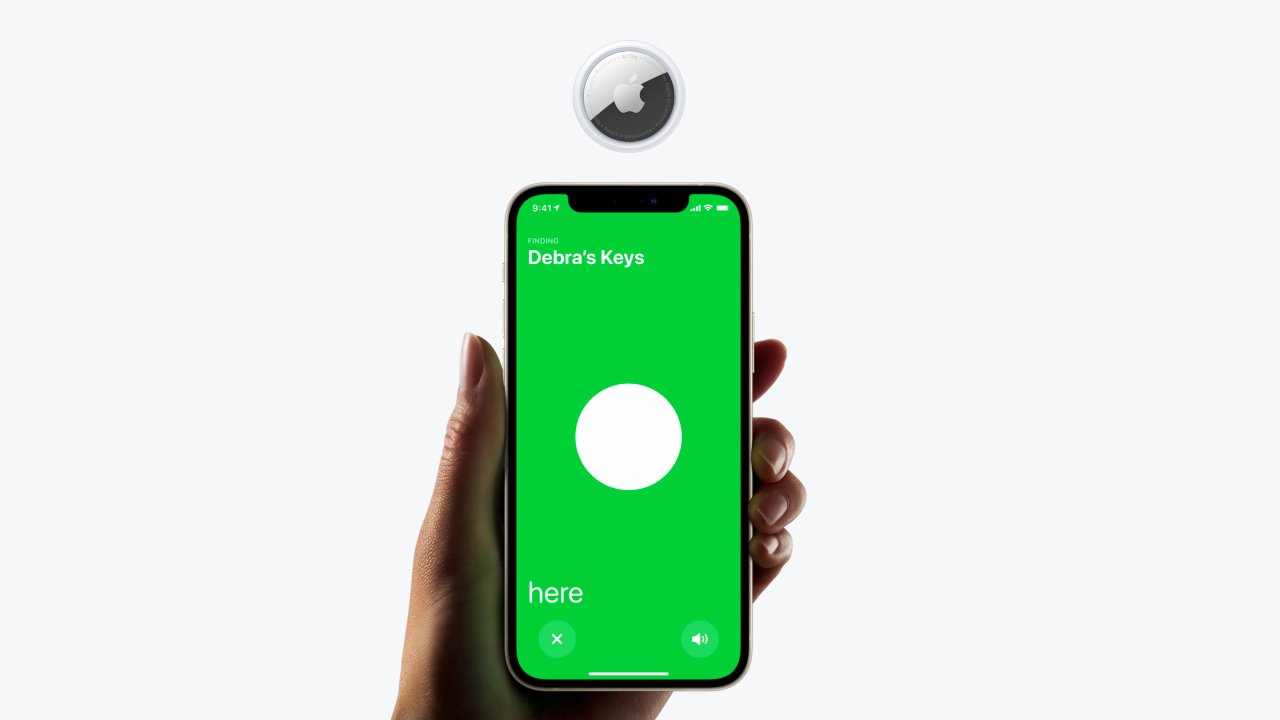
With privacy issues swarming through the tech world, ensuring your data is protected while using the AirTags is a critical issue for many users. And for good reason: AirTags are brilliant pieces of kit, but some may worry that they could be used in the wrong way.
Using the Find My app interface, Apple says that only you will ever be able to track your AirTag. This means that the signal can't be tapped into, with Apple's end-to-end encryption shielding the signal that transmits from your AirTag.
All of this means no one can discern the origin of the AirTags signal or the Apple device that receives it.
How do AirTags thwart stalkers?
There's no escaping the fact that stalkers, abusive partners and other people intent on using trackers nefariously could place an AirTag in someone's personal possessions to illicitly track a person.
Apple has built-in security measures to prevent creepers from attaching AirTags to personal items to track you without your knowledge. Your iPhone can actually discern if a tag is behaving strangely, such as following you wherever you may be going.
Packaged in with the AirTags are "proactive features that discourage unwanted tracking, an industry first,” Apple says. "Bluetooth signal identifiers by AirTag rotate frequently to prevent unwanted location tracking."
This flags any unusual patterns of activity that are out of sync with your typical movements. iOS devices have the ability to then warn users if an AirTag isn't with its rightful owner, notifying users that a hidden AirTag is traveling with them over time. An AirTag that someone may not know is on their person or connected to something they own like, say, a car.
Apple says that AirTag is designed from the "ground up to keep location data private and secure." Earlier, we mentioned end-to-end encryption, but Apple notes that it also doesn't keep any location data or location history physically stored inside AirTag.
How do these safety measures work on iOS?
For iPhone users running iOS 14.5 or later, it simply means that your device will ping you if it notices an unknown AirTag traveling alongside you. The notification will tell you if the AirTag isn't connected to your Apple ID, alerting you if it's out of range of the owner's device.
You can then use the Find My app to force the AirTag to transmit a sound, where you can locate it and hastily dispose of it — providing it's not your own, of course.
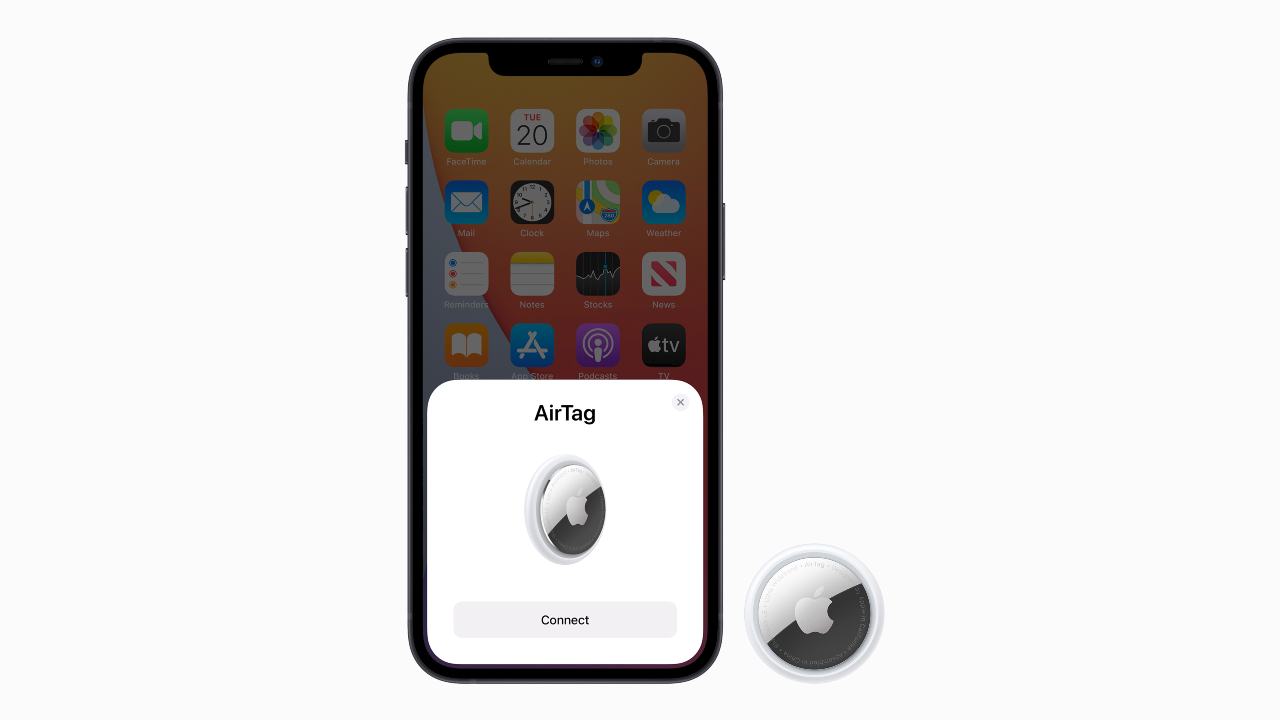
Does Android phones work with AirTag?
For now, only the Apple devices mentioned earlier support AirTag in its current form. There's plenty of non-Apple alternatives that offer similar functionality, including the Tile Pro which sells for $35, and the Tile Mate at $25. Samsung's Galaxy SmartTag and Galaxy SmartTag Plus are also worth checking out
One caveat to this is that you can use some Android devices to help people locate their lost AirTags. Providing your Android device is NFC-enabled, you can scan an AirTag to identify its unique serial number.
It's a thoughtful feature that lets NFC-enabled Android phones supplement existing Apple security measures. For instance, if you were to stumble upon an unknown AirTag, you could tap on the tag with your NFC-enabled Android device to locate the serial number. That number is unique to the owner of the tag, able to reveal the Apple ID associated with it.
Though it's not the most enthralling tidbit of info for Android users, it could be a useful add-on to help bolster the security of friends' tags, ensuring that there are no unknown AirTag entities lying about. And, if there is, you know you can use an NFC-enabled Android device to help ascertain the tag's ownership.
Are AirTags waterproof?
All AirTags come with IP67 water and dust resistance rating. It means your AirTags are able to withstand immersion in water up to one meter for a total of 30 minutes.
These ratings are established under laboratory conditions, so it's probably not worth trying this at home with your shiny new gizmo. But it does mean that the AirTag will survive exposure to liquids and can withstand unfortunate spills.
What are the range of AirTags?
Apple hasn't disclosed any concrete details on the range of the AirTag. We would expect at least 30 fee for Precision Finding. Ultra wideband has about the same range as Bluetooth.
Do I need to charge my AirTags?
The answer to this is a resounding 'no'. The AirTag employs user-replaceable CR2032 batteries. For example, a 6-pack Energizer pack of CR2032 batteries costs $7.99 on Amazon.
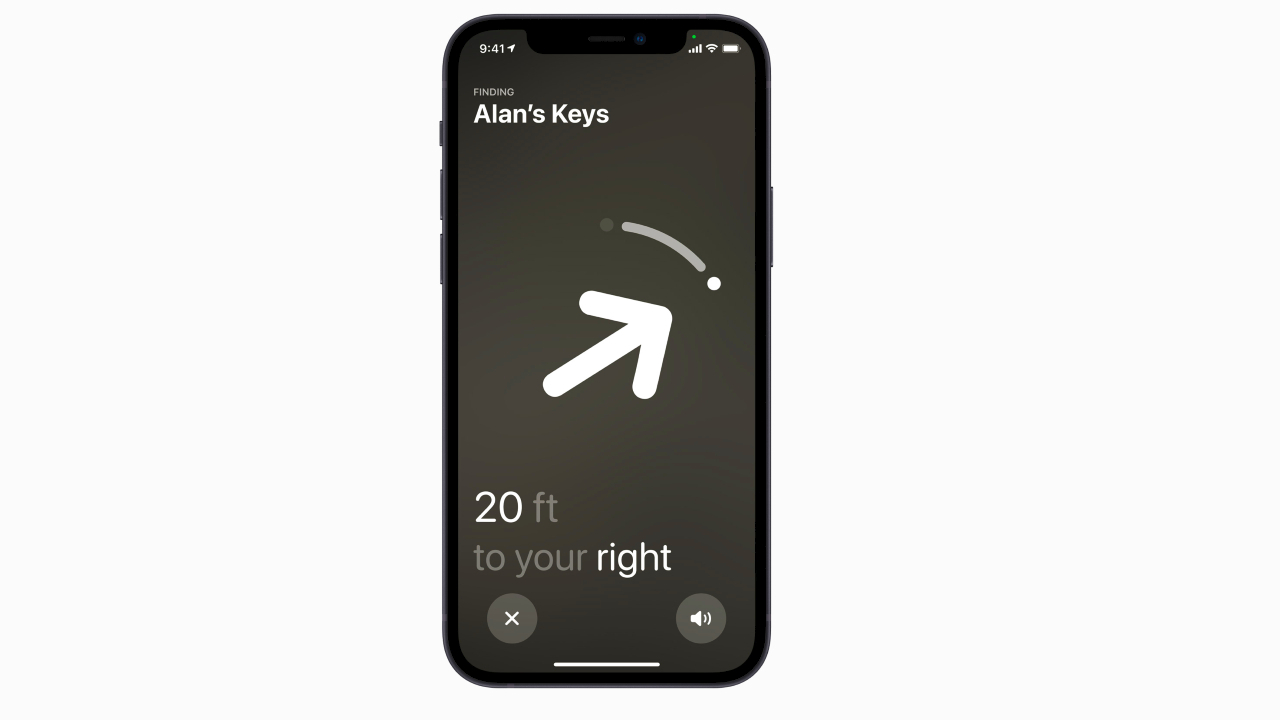
Luke is a Trainee News Writer at T3 and contributor to Tom's Guide, having graduated from the DMU/Channel 4 Journalism School with an MA in Investigative Journalism. Before switching careers, he worked for Mindshare WW. When not indoors messing around with gadgets, he's a disc golf enthusiast, keen jogger, and fond of all things outdoors.

